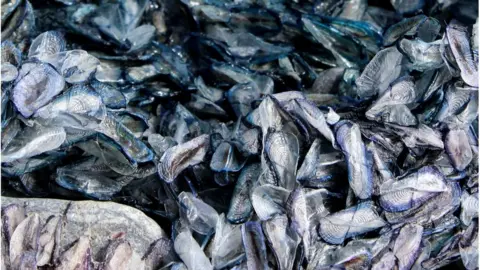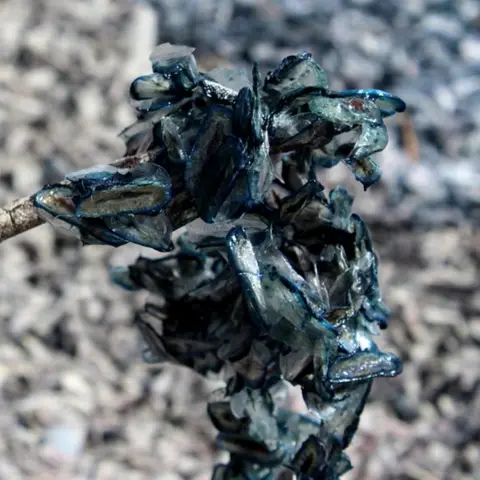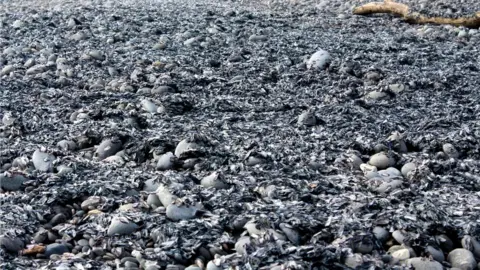New Zealand: Thousands of jelly creatures wash up on beaches
 Greymouth Star
Greymouth StarThousands of jellyfish-like creatures have washed up on the western beaches of New Zealand's South Island.
Known as By-the-wind-sailors they are related to jellyfish and common in the waters of the southern hemisphere.
According to the country's Department of Conservation (DOC), the sudden increase is likely triggered by the rising water temperatures in spring.
"But it's very unusual that you have so many thousands of them washed up in one place," the DOC told the BBC.
"It's a common species around the west coast and around NZ and they do wash up, usually in the tens or hundreds," the department's marine specialist Don Neale said.
Known scientifically as Velella, they consist of a flat hard plate with a little 'sail' formation sticking out vertically.
"That's really just a way for them to move around the ocean and get caught by the wind. And that means they are really prone to be caught by the westerly winds and get washed up on our beaches," Mr Neale said.
According to local media, a large number of them washed up at Cable Bay, Nelson, and at Farewell Spit in recent weeks.
 Greymouth Star
Greymouth StarAs waters warm up each year around spring time, plankton starts to blossom and the jellyfish start reproducing in large numbers.
So a rise in the overall number of the By-the-wind-sailors is quite common at this time of year, but the thousands washed up on the beaches remains very unusual.
"In terms of climate change it's always really difficult to say that this one thing is due to climate change - and we don't monitor the things washed up here," Mr Neale explained.
 Greymouth Star
Greymouth StarBut if water temperatures were to increase throughout the year, he suggests it would most likely affect what is growing in the water off the coast.
"It's a lot more complex though," he cautions. "These things also depend on what happens to the ocean currents so it's not just based on temperature. It's all part of a jigsaw."
